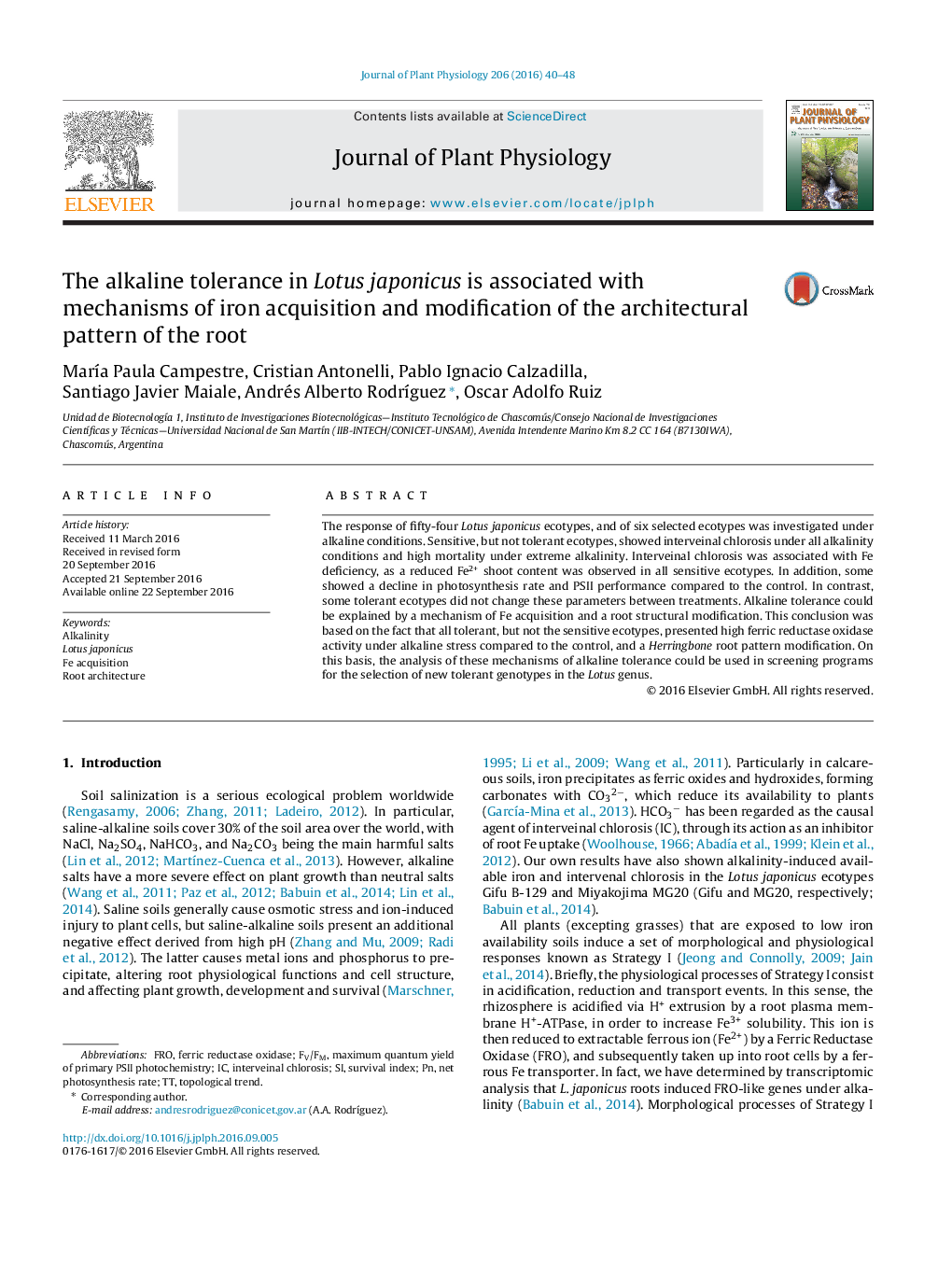| Article ID | Journal | Published Year | Pages | File Type |
|---|---|---|---|---|
| 5518161 | Journal of Plant Physiology | 2016 | 9 Pages |
The response of fifty-four Lotus japonicus ecotypes, and of six selected ecotypes was investigated under alkaline conditions. Sensitive, but not tolerant ecotypes, showed interveinal chlorosis under all alkalinity conditions and high mortality under extreme alkalinity. Interveinal chlorosis was associated with Fe deficiency, as a reduced Fe2+ shoot content was observed in all sensitive ecotypes. In addition, some showed a decline in photosynthesis rate and PSII performance compared to the control. In contrast, some tolerant ecotypes did not change these parameters between treatments. Alkaline tolerance could be explained by a mechanism of Fe acquisition and a root structural modification. This conclusion was based on the fact that all tolerant, but not the sensitive ecotypes, presented high ferric reductase oxidase activity under alkaline stress compared to the control, and a Herringbone root pattern modification. On this basis, the analysis of these mechanisms of alkaline tolerance could be used in screening programs for the selection of new tolerant genotypes in the Lotus genus.
